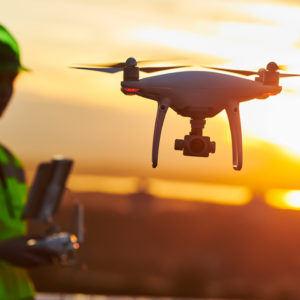The overlap on the hypothetical Venn diagram of TikTok users and opinion editorial readers would no doubt be small. So, while you may not be on the popular video app, you have likely read the security warnings of granting the app access to your personal data on your smartphone.
Last week, FBI Director Christopher Wrap warned in a Senate hearing of the app’s security concerns. And many countries — including the United States, Belgium and the European Commission — have banned the use of TikTok on government phones due to “cyber threats.”
When talking about an app like TikTok, there are valid concerns about the possibility of China gaining access to sensitive personal data. The question is, when is it safe to use technology made in China? After all, the phone you use likely was made in China. Like the iPhones most of us use daily, not all products from China prove a threat to national security. Rational minds must prevail, lest Americans be affected by unintended consequences.
A recent example is the debate over the safety of foreign-made, unmanned aerial vehicles (drones). Driven by fear and not fact, some in the government of Florida are working to ban drones paid for by taxpayers and used by Florida law enforcement and fire departments as a popular tool for protecting the public in their work as first responders.
The Florida Senate had a hearing in the Committee on Military and Veterans Affairs, Space and Domestic Security on March 14. The Florida Department of Management Services is pushing a rule that would mandate that Florida government entities would be banned from using any drone manufactured in a country of “foreign concern.” At a hearing, Florida state senator Tom Wright argued on the proposed rule, saying, “It is my estimation that this would require law enforcement agencies and fire departments across our state to throw away nearly $200 million of DJI drones.” DJI is a privately owned drone manufacturing company based in China that produces three of every four drones sold worldwide. Besides being a massive waste of public dollars, the trashing of these assets would mean the loss of an invaluable tool used by first responders to gain remote access to high-risk situations such as active shootings or natural disasters.
At the hearing, first responders pointed to incidents where these DJI drones made all the difference. Capt. Stacy McIntyre of the Florida Division of Investigative and Forensic Services pointed to a gas explosion at a strip mall where “we were able to utilize the drones to determine what the blast radius was, and we were finding pieces of debris two miles past the area” and they “could not have done that on foot without a huge amount of resources.”
Sgt. Robert Dooley, unmanned aerial vehicle coordinator with the Florida Highway Patrol, pointed to the Florida International University bridge collapse and said the use of drones kept his first responders out of harm’s way and “and it took our investigators hours, if not days, to accurately map and plan out some of that stuff,” yet “in eight minutes and 46 seconds, we had completely mapped everything and got more information in a very timely fashion” from the use of first responder drones.
The security concerns related to companies like TikTok do not apply to these drones because of a clear distinction that Sen. Wright explained at the hearing stating, “The concern of stolen data is misguided because these drones have no proven ability to send any data to any unknown source while in operation.”
He made the case that “data is only sent to the operator in real-time and stored on a small onboard micro-SD card that, after operation, is taken out and inserted into an off-network computer not connected to the internet.” He also pointed out that they use computers not connected to the internet to prevent backdoors into the system from any foreign country.
These facts have not slowed some in the Florida government from pushing hard to ban these drones so they can play make-believe to voters that they are protecting Americans from a fake national security boogie man.
Americans buy essentials from China daily. These goods are cost-effective and convenient. In the same way, first responders need cost-effective tools. Not everything coming from China is TikTok. Random and senseless bans of devices with no security risks are nothing more than petty fear-mongering used by legislators to attempt to score political points. What legislators should be fighting for is affordable tools first responders can use to aid them in saving lives and property.

